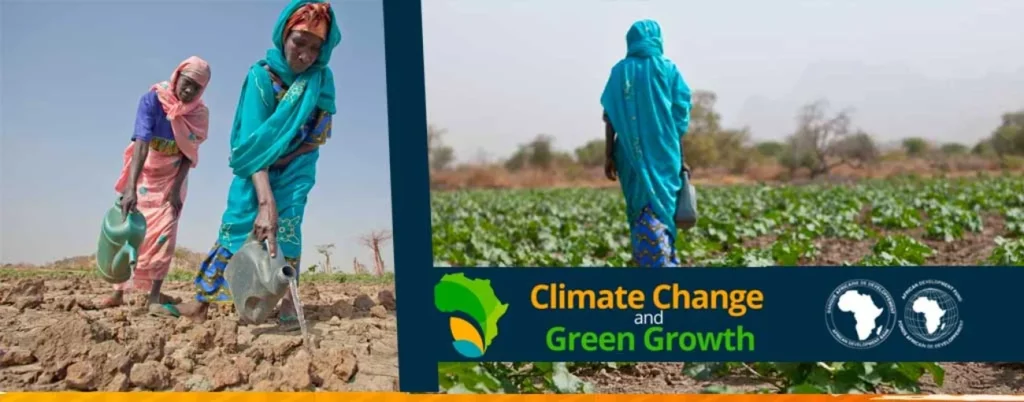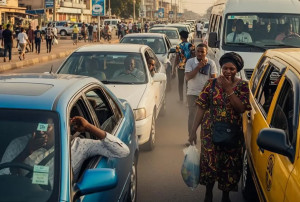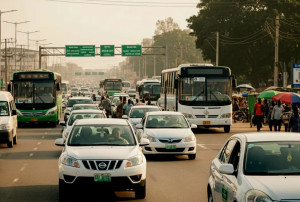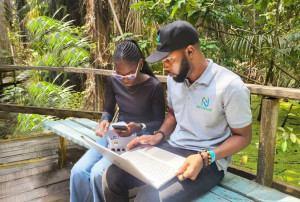Climate change threatens sustainable development in Africa, particularly among poor and highly vulnerable countries which have contributed least to greenhouse gas emissions. According to the 2022 Climate Vulnerability Index(link is external), nine of the 10 most vulnerable countries are in Sub-Saharan Africa, namely Chad, Central African Republic, Guinea Bissau, Eritrea, Democratic Republic of Congo, Sudan, Niger, Zimbabwe and Liberia. Further, the Intergovernmental Panel on Climate Change’s 2022 Climate Change Report (link is external) also confirmed that West Africa, East Africa, and Central Africa are among global hotspots of human vulnerability to climate change.
The United Nations Environment Programme estimates that costs associated with climate-change adaptation across Africa could hit $50 billion annually by 2050, even if the global temperature does not rise by more than 2°C above pre-industrial levels. Under the Paris Agreement, all countries have committed to undertake collective action to hold the global average temperature to well below 2°C above pre-industrial levels and optimally to no more than 1.5°C above pre-industrial levels. African countries have outlined bold aspirations to build climate-resilient and low-carbon economies in their Nationally Determined Contributions (NDCs) to the Paris Agreement.
However, many of these commitments are contingent on access to adequate financial, technical and capacity-building support. At the same time, climate change provides opportunities for African countries to harness their huge resource potential to achieve Sustainable Development Goal targets. Addressing climate change in Africa will create significant market opportunities, especially for the private sector and institutional investors. Having signed and ratified the Paris Agreement, nearly all African countries have committed to enhance climate action by reducing their greenhouse gas emissions and building climate resilience. For many countries on the continent, adopting climate adaptation measures will be critical.
Our Response to Climate Change
The African Development Bank Group has long been committed to action on climate change and green growth, and to ensuring that development across the continent drives growth that is not only economically empowering but also decarbonized, climate-friendly, environmentally sustainable, and socially inclusive. The Climate Change and Green Growth Department continues to make progress in driving Africa’s transition towards greater climate resilience and a low-carbon development path, in line with the third Climate Change Action Plan 2021-2025. The Bank Group is on course to meet the following commitments made under this Action Plan:
Climate mainstreaming: At project level, the Bank has increased the percentage of its projects that are based on climate-informed designs, from 77% in 2016 to 94% in 2022. The goal is to achieve 100% before 2025. For new Country Strategy Papers (CSPs) and Regional Integration Strategy Papers (RISPs), the Bank Group achieved the 100% target in 2021 and 2022, respectively.
Directing 40% of all investment to climate finance: After the 34% target reached in 2020, the Bank achieved 41% and 45% in 2021 and 2022, respectively.
Prioritizing finance for climate adaptation: the Bank Group directed 67% of its climate finance investments toward adaptation in 2021, and 63% in 2022.
Total volume of climate finance: The Bank Group’s climate finance investments increased from $2.1 billion in 2020 to $2.4 billion in 2021 and $3.6 billion in 2022.
Source:
https://www.afdb.org/en/topics-and-sectors/sectors/climate-change#:~:text=The%20African%20Development%20Bank%20Group,environmentally%20sustainable%2C%20and%20socially%20inclusive





